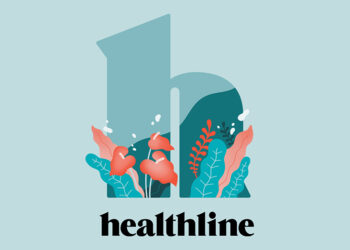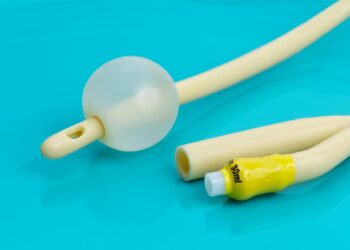TOPLINE:
Selenium supplementation is associated with improvements in key thyroid measures in patients with Hashimoto thyroiditis who are not treated with thyroid hormone replacement therapy, research from a new meta-analysis showed.
METHODOLOGY:
- For the systematic review and meta-analysis, 35 randomized controlled trials were identified that included evaluation of selenium supplementation’s effects on thyroid function.
- The studies focused on a variety of key thyroid function measures, including thyroid-stimulating hormone (TSH), free and total thyroxine (fT4, T4), free and total triiodothyronine (fT3, T3), thyroid antibodies, safety, and other factors.
- Stratified analyses were conducted to evaluate key factors including the dose and duration of selenium supplementation; patients’ thyroid status, age, gender, treatment with hormone replacement, and selenium status, such as deficiency or sufficiency; and other factors.
- While patients’ selenium levels at baseline were reported in only about half of the studies, among those that did have the data, the vast majority — 89% of cohorts — were selenium deficient.
- The study populations ranged from 31 to 364 and included children, adolescents, and adults.
TAKEAWAY:
- The analysis showed selenium supplementation to be significantly associated with decreased TSH in patients who were not treated with thyroid hormone replacement therapy (standardized mean difference [SMD], −0.21 in seven cohorts, involving 869 participants).
- Improvements associated with selenium replacement were also observed regardless of whether patients were on thyroid hormone replacement therapy in terms of decreases in thyroid peroxidase antibodies (TPOAb) (SMD, −0.96 in 29 cohorts, involving 2358 participants) and malondialdehyde (SMD, −1.16 in three cohorts, involving 248 participants).
- Overall, selenium supplementation had no significant effects on other notable thyroid measures, including fT4, T4, fT3, T3, thyroglobulin antibody (TGAb), thyroid volume, interleukin 2, or interleukin 10. However, when the analysis only included adults aged 18 and older, the selenium supplementation was linked to reductions in TSH and TPOAb, as well as increases in fT4 levels.
- Importantly, no significant differences were observed in terms of adverse effects between the studies’ intervention and control groups at selenium supplementation doses ranging from 80 to 400 μg/d for up to 12 months (odds ratio, 0.89 in 16 cohorts, involving 1339 participants).
- The authors determined that the certainty of evidence, overall, was moderate.
IN PRACTICE:
The results regarding effects of selenium on TSH “add to the existing knowledge in this field by demonstrating an effect of selenium supplementation on lowering TSH levels exclusively in Hashimoto thyroiditis patients without thyroid hormone replacement therapy,” the authors wrote. Furthermore, “our study reaffirmed the results of six prior meta-analyses reporting an effect of selenium in reducing TPOAb levels,” they added. “The inclusion of 31 cohorts enhanced statistical power compared to the previous meta-analyses, which included a maximum of nine cohorts.” “Our study suggests that selenium supplementation is safe and holds potential as a disease-modifying factor for Hashimoto thyroiditis–associated hypothyroidism,” the authors reported. “Further research is needed to confirm its efficacy, fully understand its mechanism of action, and elucidate its cost-effectiveness.”
SOURCE:
The study’s first author was Valentina V. Huwiler, MSc, of the Department of Diabetes, Endocrinology, Nutritional Medicine and Metabolism, Inselspital, Bern University Hospital, University of Bern, Bern, Switzerland. The study was published in Thyroid.
LIMITATIONS:
Due to variations in assays used in the different studies for measures including TPOAb and TGAb, the authors used SMD instead of the mean difference typically recommended when varying assays are used; however, only the effect size can be interpreted and not the clinical significance, the authors noted. Serum selenium concentrations may vary based on the analytical technique. Data on participants’ dietary habits and compliance with study regimens were not available.
DISCLOSURES:
The authors had no disclosures to report.
Source link : https://www.medscape.com/viewarticle/selenium-supplementation-shows-thyroid-benefits-2024a10003br?src=rss
Author :
Publish date : 2024-02-19 08:08:32
Copyright for syndicated content belongs to the linked Source.








